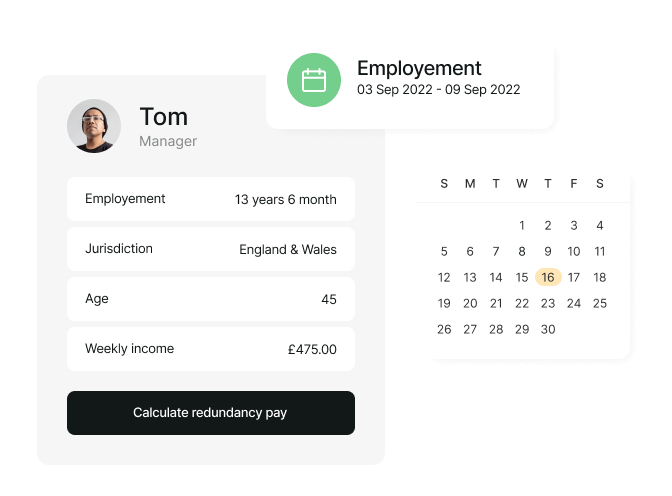How to never sit on an employee exit meeting again
With the constant pressure to innovate, grow, and succeed, startup employees need to be highly motivated and engaged to keep up. This is where performance management comes in.

While some may view performance management as a tedious administrative task, it is a critical process that can help employees thrive in a startup environment.
An effective performance management system can give employees the feedback, guidance, and recognition they need to achieve their full potential and contribute to the company’s success – so you’ll never have to sit in an employee exit meeting again.
This blog post is the result of collaborative musings between Chris Priebe, founder and CEO of Zelt, and me.

Guest author
Steph Thommen is a startup specialist with over 20 years of experience in HR and operations both in the corporate and startup world with a passion for people-first culture.
It’s not the employee that failed
One question I often get from CEOs is: ‘This person is not performing, how do I exit them?’
Beyond the legal implications of doing this, the risk to the team morale and the business’s reputation, my answer is usually that it should never have got there in the first place, or to a performance plan with an exit in mind.
The CEO’s task is to pave the way and set the direction. As a people manager, their first task then is to give team members clear, documented goals. Then they must support team members in achieving those goals through regular feedback and helping them to improve if they are not performing.
I remember someone talking about performance management and saying: ‘It’s not the employee that failed, it’s the business.’ That strongly resonated.
You are never too small or too early stage for performance management
Yet what happens when the organisation doesn’t have the tools and processes in place to manage goals, such as OKRs, reviews, or whatever you want to use?
This is particularly relevant for startups who are so busy working out… well, everything.
Often, objectives change before anything has been achieved, and no one has time to stop and think.
However, by making the time for this, you’re setting your employees – and therefore your business – up for success.
The added advantage of doing this is that you’re less likely to ever have to sit in a performance meeting again, having to put yourself, the employee and the business in a stressful situation.
Goals are both motivation and a safety net
Performance management, if done right, is a win-win for everyone involved, at any stage of your business.
Most people want to do well and progress in their careers. Goals are a way to guide team members and help them grow, a key aspect of a positive employee experience.
Documenting goals and measuring outcomes against them protects the business in the event they’re not performing against those goals.
The role of line managers in performance management
Line managers can leverage performance management as an effective tool not just to help their reports progress in their career and protect the companies in the case of termination of an employee. More importantly, it can help them achieve their own goals by leveraging the human capital of their team more effectively. In order to do so, line managers and team leads need to
- Set goals as clear measurable targets – this provides clarity.
- Align goals with the company’s mission – this gives purpose.
- Document progress against those goals – this provides facts.
- Discuss progress and results often – this provides focus.
- By baking this into the day-to-day operations, teams can work together more effectively and achieve goals faster.
The role of HR in performance management
No one is born with the skills to do performance management well. HR professionals can help coach managers so that they can build the skills needed to confidently identify and communicate meaningful OKRs, set ambitious but achievable goals and objectively assess performance without falling back on performance plans. It is the responsibility of HR to
- help managers develop the skills they need to empower their reports to perform
- develop the processes that unify goal setting and performance across the organisation (OKR, feedback, reviews)
- encourage managers to have difficult conversations and not shy away from them
Hard on the issue, soft on the person

This last point is particularly important because it’s easier to have a few slightly uncomfortable conversations (“You are behind on your OKRs”) rather than one big one (“You’re fired”).
More importantly, when you tackle underperformance early there is still a chance to recover and turn the situation around.
Having performance management processes in place removes the “human” element from performance-related conversations and helps managers and employees focus on facts and remove feelings or critiques that could be interpreted as personal from the conversation.
As a result, you will be more successful in
- helping employees that are struggling to improve using results-based feedback
- identifying skill gaps, which can be addressed by training
- keeping a transparent documentation trail if things are not improving and disciplinary action is necessary
What can you do to never have to sit on an employee exit ever again?
However small or scrappy the business, create your goal-setting, review and feedback processes early. And do not forget about them. Because if you do, it tells the team that results really don’t matter, and neither does personal development.
For example, make it a habit to talk about goals and performance on stand-ups and in one-on-ones, starting today.
However busy you are, it’s beneficial for the company and employees to make time for goal setting and reviews so that everyone in the organisation pays attention and makes time for them as well.
Make goals and reviews your priority and you won’t have to sit in an exit meeting ever again.
Frequently asked questions
What is an exit interview?
An exit interview is conducted prior to an employee leaving a company with the aim of finding areas in which an organisation may improve its efforts to retain its most valuable personnel. The HR department usually plays some role in conducting this interview, which is a critical part of the whole offboarding procedure.
What are the key elements of a performance management framework?
A performance management framework is a structured and systematic approach to managing the performance of individuals and teams within an organisation. It is a critical tool for organisations to align their employees’ efforts with the organisation’s goals and objectives.By implementing a comprehensive performance management framework, organisations can ensure that their employees are motivated, engaged, committed to achieving their goals and minimise the chances of underperformance.
Several key elements are important to create a culture of performance excellence. These include
- goal setting
- performance planning
- ongoing coaching and feedback
- employee development
- performance evaluation (using the right performance review questions)
These elements are interrelated, and each plays a crucial role in driving employee performance and achieving organisational success.
Modern performance management tools can help line managers set up a performance management framework and execute it more consistently.
Where can I find an exit interview template for the UK?
There are many resources on the internet that help with the employee exit process. An exit interview template
- helps HR and line managers ask the right exit interview questions
- ensures a certain level of consistency in your exit interview process across time and different line managers
- gives an employee the opportunity to give written feedback using an appropriate exit interview form
- makes the employee aware of their rights


